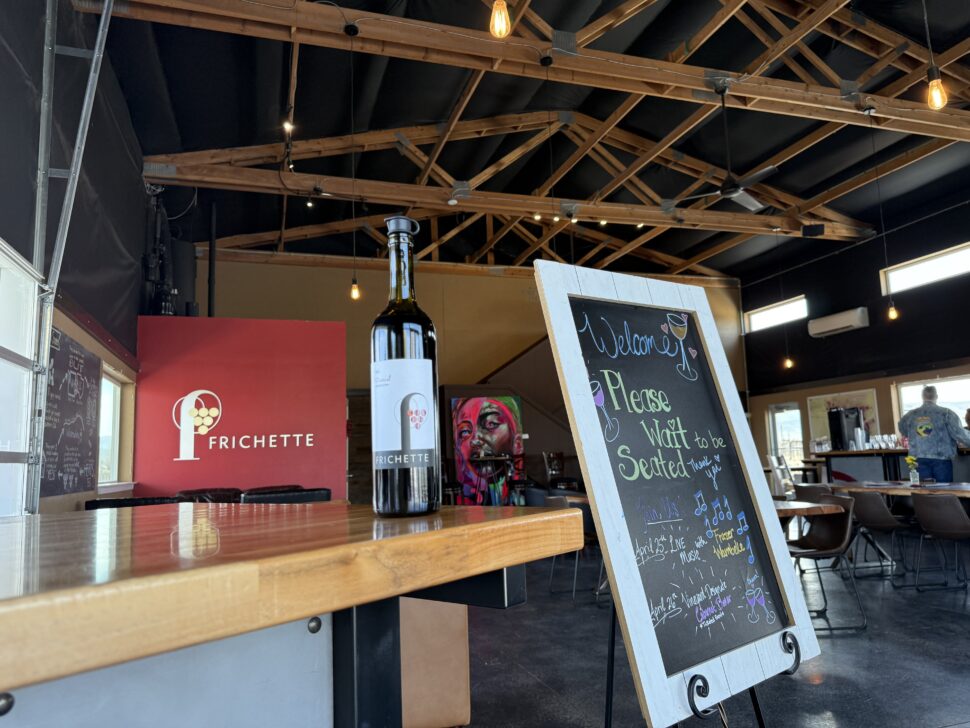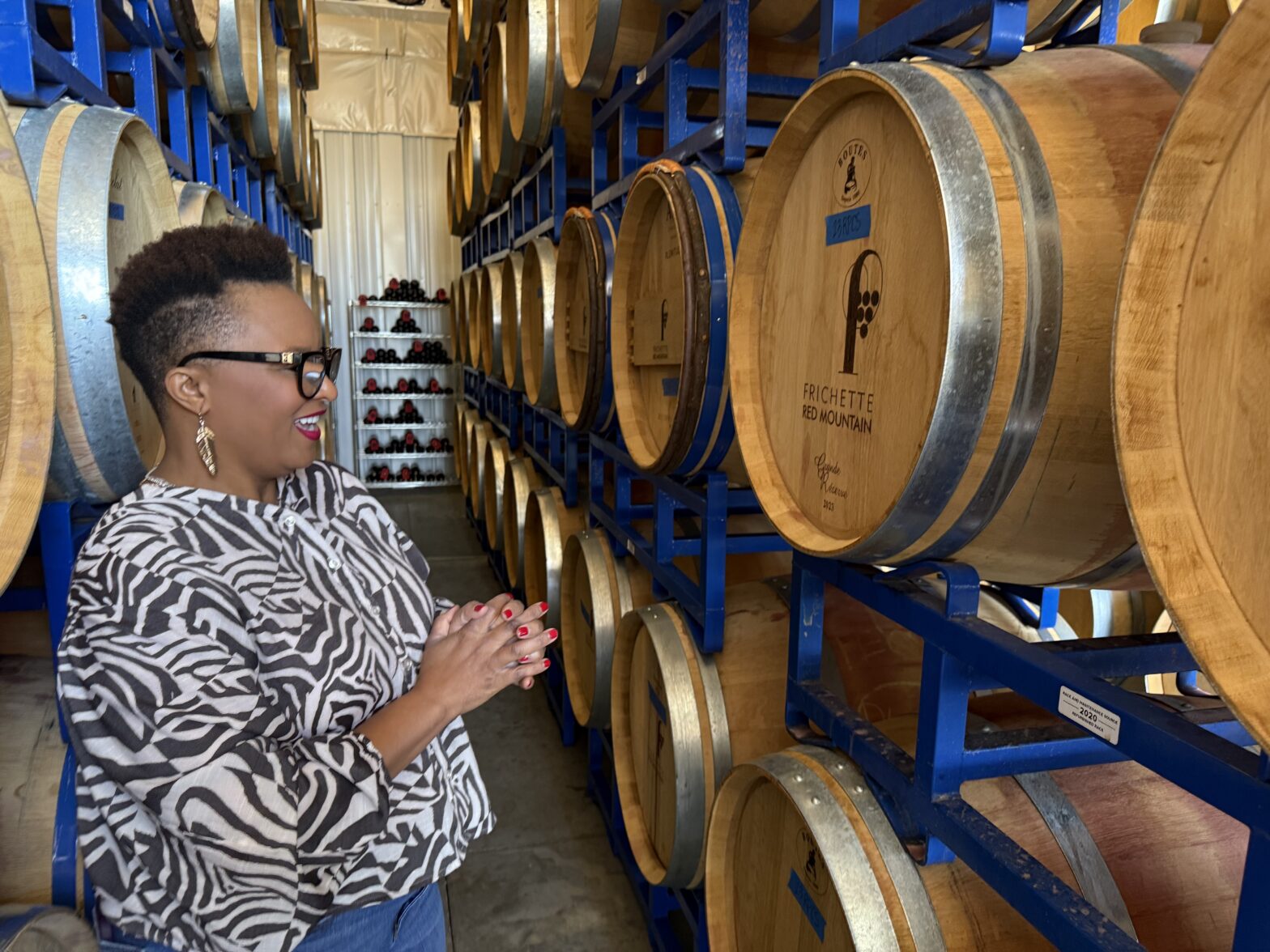It’s around 1 p.m. on a Saturday, and sitting on the outside of Frichette Winery are a handful of regulars who have been hanging out at the winery since it opened at 10 a.m. The guests are no longer tasting from the winery’s event that took place earlier in the day. Now, these guests are taking in the views of Washington’s Red Mountain American Viticultural Area and the energy in what is believed to be the state of Washington’s first Black-owned winery and the only one in Yakima Valley.
The atmosphere is inviting, cozy, and familiar for first-timers like me. This is precisely what Shae and her husband Greg envisioned for their tasting room. For Shae, looking out at people enjoying themselves and fellowshipping among the breathtaking views takes her breath away.
“I’m still in awe,” she tells Travel Noire, adding that it’s a scene that takes her back to her childhood in Marion, South Carolina. “We had an acre and a half that we would garden. We grew not just for us but also for our community. If anybody needed food, we had more than enough. It was always easy to want to share.”
Now, she’s sharing the region’s grapes with the world.
Four Times A Charm: Landing On A Property That Wasn’t For Sale
Greg and Shae were living in Southern California when they met, married, and eventually had their son Jayden. Relocating to Washington happened, quite literally, with the flip of a coin. The new parents wanted to move closer to family. South Carolina was on one side of the coin, but it landed on Greg’s side, so off to Washington they ventured.
Before relocating, it was always their plan to create a business that would give them goosebumps, which is how they landed in the wine industry. The couple had already begun wine processing, but was working out of a facility that allowed them to make wine. However, they were searching for the perfect property, knowing it would become their tasting room and a backdrop of stunning grape vines.
Both Shae and Greg began knocking on doors, asking people to sell their land to them. Everyone said no, including the owners of a 5.5-acre property they were interested in.

“We just really wanted to be on Red Mountain. We fell in love with the wine grapes here, and there’s a cool sense of community here,” says Shae.
So, they kept going back to this particular property even though it wasn’t for sale. On the third visit, the couple occupying the property invited the Frichettes to tour around. By the fourth visit, Shae and Greg were closing on their dream property.
“I asked her why they decided to sell to us, and the wife said, ‘We felt like we were standing in the way of your dream. We felt you could do something so incredible with this property, and we didn’t want to be the people to stand in the way of it.”
What To Expect During Your Visit To Frichette Winery
Even though Shae is hundreds of miles away from home, she brings authentic Southern hospitality to the tasting experience inside one of the few Black-owned wineries in the United States. The winery is known for its exceptional red wines, particularly Cabernet Sauvignon and Cabernet Franc.
The Frichettes harvest their vines at the end of September and will process the grapes by the beginning of October on the crush pad, allowing guests to observe the process. The grapes age for a couple of years in oak barrels since the winery is a 100% French Oak House.
They offer a unique label named after Shae herself: Sashay Wines. Shae also brings a taste of home to Washington with the winery’s annual Soul Food Dinner.
Shae and Greg opened their tasting room in 2013, offering their first vintage, from 2011, in 650 cases of wine. More than 10 years later, the duo and their team are producing nearly 3,000 cases per year and welcoming thousands of guests from around the world.
“Our expression of flavorful and smooth red wines and ‘be in the moment’ vibes carry through in every sip of wine and in every second of delightfulness in our winery,” the Frichettes say on their website. “Our mission is to grow wine grapes and make great wine that will ‘wow’ our guests’ palates. While doing this, we also strive to be good stewards of the land and contributors to our community.”





